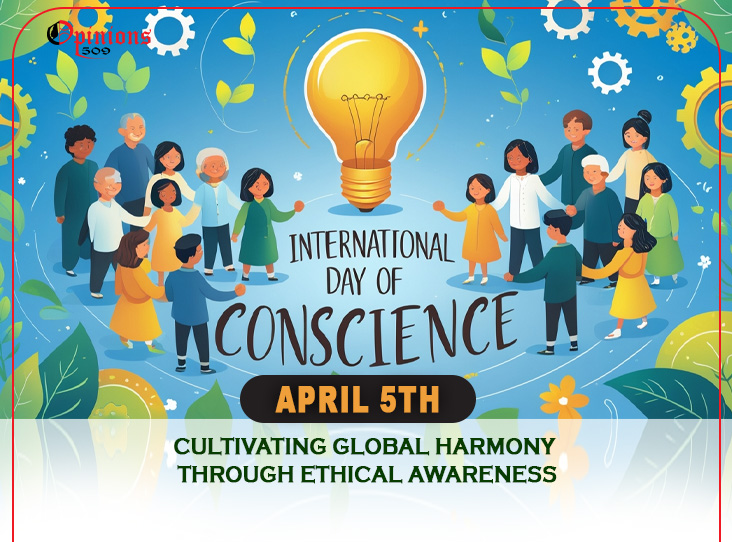Every year on April 5th, the world observes the International Day of Conscience, a United Nations initiative dedicated to fostering a culture of peace and ethical mindfulness. In an era marked by complex global challenges, this day serves as a reminder of the power of individual and collective conscience in driving compassionate action and sustainable solutions.
Table of Contents
Origins and Purpose
Established by UN General Assembly Resolution 73/329 on July 25, 2019, the International Day of Conscience emerged from a proposal by the Kingdom of Bahrain, inspired by its “Declaration of Peace and Coexistence.” The resolution underscores the importance of conscience, the inner moral compass guiding individuals toward justice, empathy, and respect for human dignity. By designating April 5th as a day of reflection, the UN calls on nations, communities, and individuals to prioritize dialogue over division and ethics over indifference.
Conscience in Addressing Global Challenges
The 21st century confronts humanity with unprecedented issues: climate crises, armed conflicts, systemic inequality, and displacement of millions. These challenges demand responses rooted in conscience—choices that balance self-interest with the greater good. For instance, grassroots movements advocating for environmental stewardship, or NGOs facilitating cross-cultural dialogues in conflict zones, exemplify conscience-driven initiatives.
As former UN Secretary-General António Guterres noted, “Peace is not a passive state, but a conscious choice requiring constant nurturing.” Conscience compels us to confront uncomfortable truths, such as addressing economic disparities or protecting vulnerable populations, transforming empathy into actionable change.
Observing the Day: From Reflection to Action
The International Day of Conscience encourages multifaceted engagement:
- Educational Initiatives: Schools and universities host workshops on ethical leadership, human rights, and conflict resolution. UNESCO’s Culture of Peace program, promoting global citizenship education, aligns closely with these goals.
- Community Dialogues: Interfaith and intercultural discussions foster mutual understanding. In 2022, a community-led mediation project in Kenya reduced ethnic tensions by reviving traditional peace-building practices.
- Policy Advocacy: Governments are urged to integrate ethical frameworks into legislation, such as climate policies prioritizing green economies or laws protecting marginalized groups.
- Personal Commitment: Individuals are invited to reflect on their daily choices, whether through volunteering, supporting fair-trade practices, or simply practicing kindness. Social media campaigns like #ConscienceInAction amplify these efforts globally.
A Call to Collective Responsibility
While April 5th highlights conscience, its true spirit lies in sustained practice. Corporations adopting fair labor practices, journalists upholding truth in disinformation battles, and citizens advocating for accountability all contribute to a conscience-driven society. The day also complements other UN observances, such as the International Day of Peace (September 21), creating a continuum of advocacy for harmony.
The International Day of Conscience is more than a symbolic observance, it is a catalyst for enduring change. By nurturing our innate sense of right and wrong, we pave the way for inclusive societies where diversity is celebrated and dignity upheld. As we face an interconnected world’s trials, let conscience guide our steps, transforming collective aspiration into tangible progress. On this day, and every day, each act of integrity becomes a thread in the fabric of global peace.

Author
Stay connected for new publications, events, and more.










More Stories
Le pape Léon XIV : un pontife historique qui jette un pont entre les continents et les cultures
What Happens When a Pope Dies
Le Prix de la Liberté : 17 Avril 1825, une Ordonnance Injuste. Déclaration de Macron